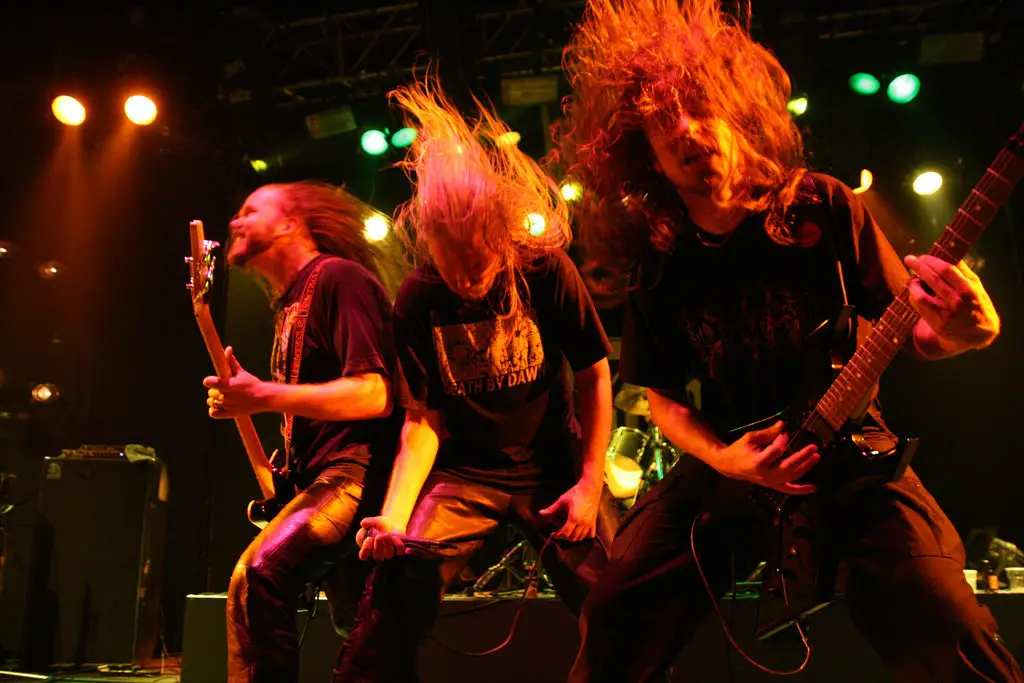
New study from Macquarie University’s music lab finds that death metal music, despite its gruesome there, inspires joy instead of violence.
“The lyrics of death metal band BLOODBATH‘s cannibalism-themed track, “Eaten,” do not leave much to the imagination. But neither this song – nor the gruesome lyrics of others of the genre – inspire violence,” source adds.
“[Death metal] fans are nice people,” said Prof Bill Thompson, from the Australian university, which is based in Sydney. “They’re not going to go out and hurt someone.”
This latest study is part of a decades-long investigation by Prof Thompson and his colleagues into the emotional effects of music. These effects, he explained, are complex.
“Many people enjoy sad music, and that’s a bit of a paradox – why would we want to make ourselves sad?” he asked. “The same can be said of music with aggressive or violent themes. For us, it’s a psychological paradox – so [as scientists] we’re curious, and at the same time we recognise that violence in the media is a socially significant issue.”
Lead researcher Yanan Sun explained that the aim of the experiment was to measure how much participants’ brains noticed violent scenes, and to compare how their sensitivity was affected by the musical accompaniment.
To test the impact of different types of music, they also used track
“Happy” by Pharrell Williams as the opposite to BLOODBATH‘s “Eaten.”
Each participant was played “Happy” or “Eaten” through headphones, while they were shown a pair of images – one to each eye. One image showed a violent scene, such as someone being attacked in a street. The other showed something innocuous – a group of people walking down that same street, for example.
The basis of this psychological test is that when most people are presented with a neutral image to one eye and a violent image to the other – they see the violent image more, Dr Sun explains.
“The brain will try to take it in – presumably there’s a biological reason for that, because it’s a threat,” Prof Thompson tells.
“If fans of violent music were desensitised to violence, which is what a lot of parent groups, religious groups and censorship boards are worried about, then they wouldn’t show this same bias. “But the fans showed the very same bias towards processing these violent images as those who were not fans of this music.”
You can find entire study at this location.